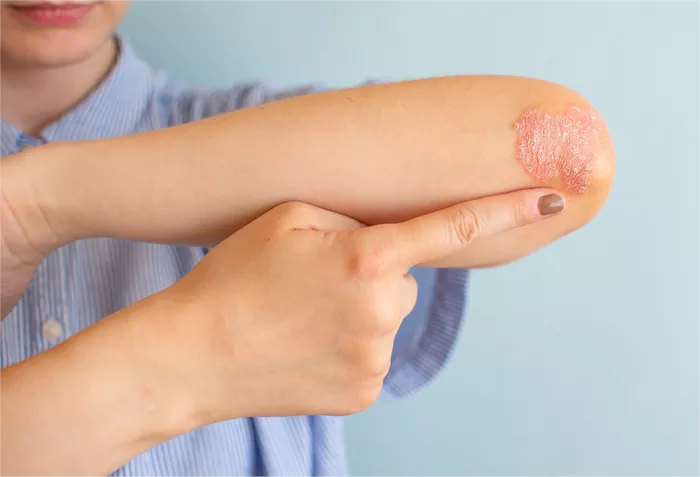Ringworm is a common fungal infection that can affect various parts of the body. It’s caused by dermatophytes, which are fungi that thrive on keratin, a protein found in the skin, hair, and nails. Although it’s called “ringworm,” it has nothing to do with worms. Ringworm can cause a red, itchy, and ring-shaped rash that can spread quickly. Many people wonder why their ringworm spreads so fast. This article will explore the reasons behind the rapid spread of ringworm and offer tips on how to manage and treat it effectively.
Understanding Ringworm
Before we dive into why ringworm spreads, it’s important to understand the infection. Ringworm occurs when the fungi infect the skin. These fungi are highly contagious and can spread through direct skin-to-skin contact or by touching contaminated objects or surfaces. People with weakened immune systems are more susceptible to developing ringworm, but anyone can get it.
Common Symptoms of Ringworm
The most obvious symptom of ringworm is a red, itchy rash that forms in a circular or ring-like shape. The affected area might appear scaly, and the edges of the ring can be raised. The center may look clear or less inflamed. The rash is usually itchy and can be painful, especially if scratched. It’s also common to have multiple patches of ringworm on the skin, which can make it appear as though the infection is spreading rapidly.
Why Does Ringworm Spread So Fast?
Several factors contribute to the quick spread of ringworm. Understanding these factors can help you control the infection and prevent it from getting worse.
1. Fungal Nature of Ringworm
Ringworm is caused by fungi that spread easily. These fungi are microscopic and can survive on surfaces for a long time. They thrive in warm, moist environments, such as the skin, especially in areas like the groin, feet, or armpits. When the fungi land on your skin, they begin to grow, causing the infection to spread.
2. Lack of Treatment
If ringworm is left untreated, it can spread rapidly. The infection can spread not only to other parts of the body but also to others around you. Treatment for ringworm typically involves antifungal medications, such as creams, lotions, or oral medications. If you don’t start treatment promptly, the infection can worsen and spread more quickly.
3. Poor Hygiene Practices
Poor hygiene is one of the leading causes of the rapid spread of ringworm. Fungal infections thrive in environments where skin is often damp or not properly cleaned. For instance, wearing sweaty clothes for long periods or not drying your body properly after a shower can create the ideal environment for ringworm to spread. Sharing towels, clothes, or other personal items can also contribute to the fast spread of the infection.
4. Contact with Infected People or Animals
Ringworm is highly contagious, and you can contract it from direct skin-to-skin contact with someone who has the infection. The fungi can also be spread through contact with contaminated surfaces like gym equipment, bedding, and towels. Pets, especially cats and dogs, can also carry ringworm and transmit it to humans.
5. Weakened Immune System
A weakened immune system can make it easier for ringworm to spread. People who have conditions like diabetes, HIV, or other autoimmune diseases may be more prone to fungal infections. When the immune system is not functioning properly, it is less able to fight off infections, allowing the fungi to spread more easily.
6. Moisture and Sweat
Fungi that cause ringworm love moist environments. Sweaty skin, especially in areas like the feet, groin, and underarms, can create the perfect environment for the fungi to grow and spread. If you wear tight clothing or shoes that trap sweat, it can increase the chances of ringworm spreading rapidly.
7. Inadequate or Delayed Treatment
Sometimes, people may start using antifungal creams or medications but stop before completing the full course of treatment. This can allow the infection to return or spread because the fungi haven’t been completely eliminated from the skin. Inadequate treatment can make the infection worse and harder to manage, allowing it to spread further.
What Happens If Ringworm Goes Untreated?
If you ignore ringworm or delay treatment, the infection can worsen. The rash may become larger, and more areas of the skin may be affected. The itching and discomfort may also increase. In some cases, ringworm can spread to the nails or scalp, leading to more severe symptoms. Ringworm can also lead to secondary bacterial infections if the skin becomes broken from excessive scratching.
In rare cases, untreated ringworm can lead to complications such as:
Cellulitis: A bacterial infection of the skin that can cause redness, swelling, and pain.
Scarring: The infection may leave scars, especially if it is scratched or not treated properly.
Chronic Infections: Ringworm can become a long-term problem if not managed properly, requiring more aggressive treatment.
How to Stop Ringworm from Spreading
To prevent ringworm from spreading, it is essential to take immediate action and follow proper treatment methods. Here are some tips to help you manage and treat ringworm:
1. Use Antifungal Medications
The most effective way to treat ringworm is with antifungal medications. Over-the-counter antifungal creams or sprays can be applied directly to the affected area. In some cases, a doctor may prescribe oral antifungal medications if the infection is severe or widespread. Make sure to follow the instructions carefully and continue the treatment for the recommended duration.
2. Practice Good Hygiene
Good hygiene is essential to prevent ringworm from spreading. Wash the affected area with soap and water regularly. Make sure to dry your skin thoroughly after showering, especially in areas prone to moisture, like the feet and groin. Change your clothes and bedding frequently to avoid re-infection.
3. Avoid Scratching
Although ringworm can be itchy, scratching can worsen the infection and increase the risk of spreading it to other parts of your body or to others. Try to resist the urge to scratch, and use an anti-itch cream to help alleviate discomfort.
4. Keep the Area Dry
Fungi thrive in moist environments, so it is important to keep the infected area dry. Use powder or antifungal sprays to help keep the skin dry and reduce sweating. Avoid wearing tight clothing that may trap moisture against your skin, and choose breathable fabrics like cotton.
5. Avoid Sharing Personal Items
To prevent ringworm from spreading to others, avoid sharing personal items like towels, razors, clothes, and bedding. Wash these items regularly in hot water, and use antifungal sprays on items like shoes, socks, and gym equipment to kill any lingering fungi.
6. Treat Pets
If you have pets, make sure to check them for ringworm as well. Ringworm can be passed from animals to humans, so it is important to treat your pets for the infection if they are affected. Consult a veterinarian for proper treatment options.
7. Seek Medical Attention
If ringworm does not improve after using over-the-counter treatments, or if the infection is spreading rapidly, consult a healthcare professional. They may recommend a stronger antifungal treatment or investigate other potential causes for the infection.
Conclusion
Ringworm is a highly contagious fungal infection that can spread quickly if not properly treated. Several factors, including poor hygiene, contact with infected people or animals, and a weakened immune system, can contribute to the rapid spread of the infection. It’s essential to start treatment as soon as possible and practice good hygiene to prevent further spread. By following proper treatment methods and taking preventive measures, you can manage ringworm and avoid it from spreading to other areas or people. If the infection continues to spread despite treatment, seeking medical help is essential for a more comprehensive solution.
Related topics
























